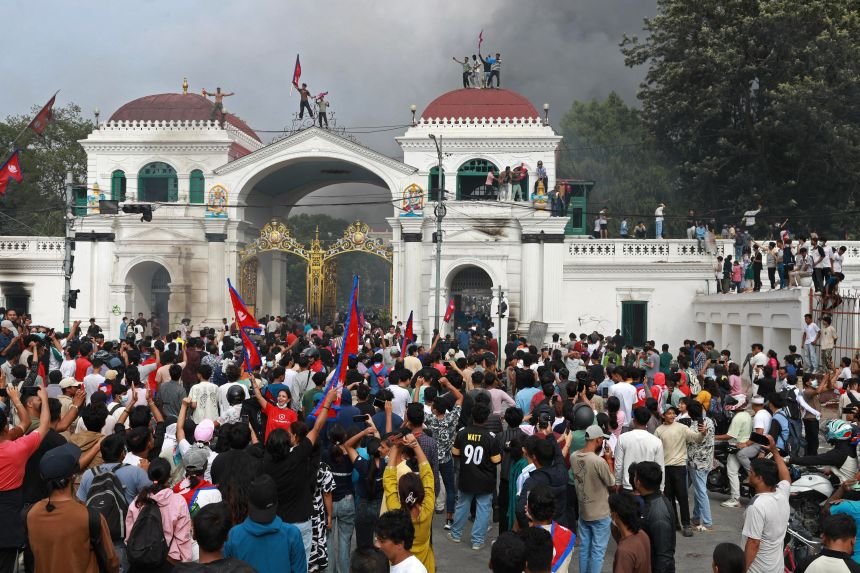Nepal has been rocked by its most serious political crisis in decades as youth-led “Gen Z” protests against corruption and inequality forced Prime Minister K.P. Sharma Oli to resign. The unrest escalated when demonstrators stormed parliament, torched luxury hotels, and attacked the residences of political elites, exposing widespread anger at leaders’ lavish lifestyles in a nation where millions struggle for survival. At least 34 people have been killed and more than 1,300 injured, while the army has imposed a curfew across Kathmandu.
President Ramchandra Paudel has appealed for calm and consultations have begun for a political transition. Former Chief Justice Sushila Karki has emerged as a leading candidate to head an interim government tasked with restoring order and preparing new elections. Protest leaders, however, insist their primary demand is dissolution of parliament and genuine reform, not power-sharing. The Gen Z movement—energized by TikTok and Instagram—has galvanized young Nepalis disillusioned by economic hardship and elite corruption. With thousands of prisoners escaping amid the chaos, the crisis underlines a generational revolt against entrenched leadership, reflecting a deep yearning for accountability, equality, and a political order that prioritizes the people over privilege.















